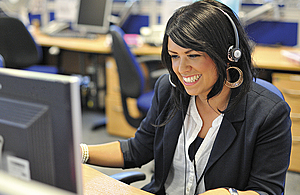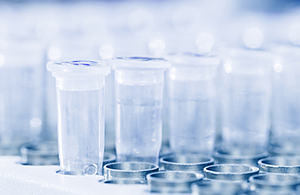Coronavirus (COVID-19): Health Secretary’s statement to Parliament
Mr Speaker, with permission, I would like to make a statement on coronavirus.
This is the most serious public health emergency in a hundred years. But through the combined efforts of the whole nation we have got through the peak.
Let’s not forget what together has been achieved.
We flattened the curve and now the number of people in hospital with coronavirus is half what it was at the peak.
We protected the NHS, and the number of patients in critical care is down by two thirds.
Mercifully, the number of deaths across all settings is falling.
This Mental Health Awareness Week is an important reminder that we need to look after ourselves as well as each other, and that if you need support with your mental health, the NHS is there for you.
This is particularly important for frontline staff, and we’ve supported all NHS trusts to develop 24/7 mental health lines.
Mr Speaker, our plan throughout this crisis has been to slow the spread and protect the NHS.
Thanks to the resolve and shared sacrifice of the British people, the plan is working and we are now in the second phase of this fight and I want to update the House on the next steps we are taking as part of that plan.
First, we are protecting the nation’s care homes with a further £600 million available directly to care homes in England and we’ve prioritised testing for care homes throughout and we’ve made sure every care home has a named NHS clinical lead and we’re requiring local authorities to conduct daily reviews of the situation on the ground, so that every care home gets the support it needs each and every day.
All of this amounts to an unprecedented level of scrutiny and support for the social care system, and a level of integration with the NHS that is long overdue.
Second Mr Speaker, the 4 UK Chief Medical Officers have today updated the case definition to include a new symptom.
Throughout this pandemic, we’ve said that if you develop a new, continuous cough or a fever then you should immediately self-isolate.
From today we are including anosmia, which means that if you’ve lost your sense of smell or are experiencing a change in your normal sense of smell or taste, that can be a symptom of coronavirus, even where the other symptoms are not present.
So from today, if you develop a continuous cough or fever or anosmia, you should immediately self-isolate for at least 7 days, in line with the guidelines.
Members of your household should self-isolate for 14 days.
By updating the case definition in line with the latest science, we can more easily recognise the presence of the virus and more effectively fight it.
Third Mr Speaker, we are expanding eligibility for testing further than ever before.
Over the past 6 weeks, this country has taken a small, specialised diagnostics industry and scaled it, at breath-taking pace, into a global champion.
Yesterday Mr Speaker we conducted 100,678 tests.
Every day we are creating more capacity. That means more people can be tested and the virus has fewer places to hide.
Today I can announce to the House that everyone aged 5 and over with symptoms is now eligible for a test.
That applies right across the UK in all 4 nations from now.
Anyone with a new continuous cough, a high temperature or the loss or change of sense of taste or smell can book a test by visiting nhs.uk/coronavirus.
If you’re eligible for a test and you don’t have internet access you can call 119 in England, Wales and Scotland, or 0300 303 2713 if you’re in Northern Ireland.
We will continue to prioritise access to tests for NHS and social care, patients, residents and staff and as testing ramps up towards our new goal of total capacity for 200,000 tests a day, ever more people will have the confidence and certainty that comes with an accurate test result.
Fourth, Mr Speaker I want to update the House on building our army of contact tracers.
Today I can confirm that we have recruited over 21,000 contact tracers in England.
This includes 7,500 healthcare professionals who will provide our call handlers with expert clinical advice.
They will help manually trace the contacts of anyone who has had a positive test and advise on them on whether they need to isolate.
They have received rigorous training, with detailed procedures designed by our experts at Public Health England.
Mr Speaker, they have stepped up to serve their country in its hour of need and I want to thank them in advance for the life-saving work that they’re about to do.
The work of these 21,000 will be supported by the NHS COVID-19 app, which we are piloting on the Isle of Wight at the moment and will then roll out across the country.
Taken together, this means that we now have the elements we need to roll out our national Test and Trace service – the testing capacity, the tracing capability and the technology.
Building that system is incredibly important, but so too are the basics.
We need everyone, everyone, to self-isolate if they have or if someone in their household has symptoms.
And we need everyone to keep washing their hands and following the social distancing rules.
We need everyone to stay alert because this is a national effort and everyone has a part to play.
The goal is to protect life and allow us, carefully and cautiously, to get back to doing more of the things that make life worth living.
That is our goal, we are making progress towards it, and I commend this statement to the House.


